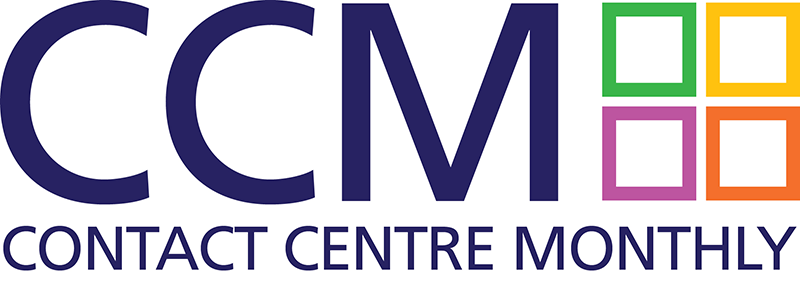More than half of consumers globally are comfortable using AI assistants in daily life, while prioritising human connection in critical moments
JULY 2025 – A new global survey conducted by YouGov and commissioned by Zendesk reveals that consumer trust in personal AI assistants* is gaining significant momentum, with more than half (52%) of respondents feeling comfortable** relying on them for everyday tasks.
The results reflect a pivotal moment for AI: it’s no longer just transforming businesses – it’s entering the daily lives of consumers. From productivity to professional communication, people are beginning to embrace AI-powered support. However, the findings also underscore that trust has its limits.
Personal AI Assistants are welcome – but only to a point
According to the study, the task that consumers are most comfortable entrusting to AI assistants is managing to-do lists and calendars: 64% indicate a willingness to let AI handle these interactions. However, this comfort often comes with conditions: many of these consumers would still want the ability to review or approve messages before they’re sent. At the same time, 84% believe human interaction should always remain an option – highlighting the need for CX leaders to prioritise technology that fosters human connections.
That’s followed by professional communication tasks, such as scheduling meetings or managing emails, where 52% feel at ease.
But comfort drops when AI ventures into high-stakes territory. Only 39% of global respondents are willing to trust AI assistants with financial planning decisions. If an AI assistant were to make a financial mistake – such as paying the same bill twice -, 58% of respondents would revert to human assistance. However, if the mistake was an irrelevant recommendation, like suggesting a product the consumer just bought, 58% would continue to trust AI assistants.
In the UK, consumers mirror global preferences but with greater caution. 55% say they are comfortable with AI managing their to-do lists and calendar and 35% trust AI assistants to handle professional communications. However, only 19% are willing to trust AI assistants with financial planning decisions – placing the UK, alongside Germany, among the least comfortable markets when it comes to AI making personal decisions.
In stressful situations, consumers still prefer human interaction. Whether dealing with urgent issues or disrupted travel plans, 55% of global respondents say they would prefer to speak with a human rather than a bot. In the UK, that figure rises to 78%, highlighting a stronger preference for human support in moments of pressure.
Still, there are signs of growing openness in the UK – 37% of respondents believe that a personal AI assistant could free up time for more meaningful activities by handling routine tasks.
When it comes to interacting with brands and their customer service, 54% of respondents believe AI assistants will make support faster and more efficient. However, 63% agree that companies will need to redesign customer service to accommodate the use of personal AI assistants.
This could mean allowing a personal AI assistant to communicate directly with a company’s AI on the customer’s behalf – one in three (33%) would be comfortable letting AI handle these interactions. At the same time, 84% believe human interaction should always remain an option – highlighting the need for CX leaders to prioritise technology that fosters human connections.
“Consumers are increasingly embracing personal AI assistants – not just as support tools, but as part of daily life,” said John Kelleher, VP UKI and MEA at Zendesk.
“Our latest CX Trends report shows AI acceptance has jumped to 67%, and this new research reinforces what we’re seeing globally: people expect AI to make support faster and more efficient.
“But trust remains key to unlocking AI’s full potential, and consumers expect companies to evolve. The message is clear: brands must rethink the entire service experience with AI as a collaborator, not just a feature”
Trust hinges on security and transparency
Trust in AI is conditional, and companies must meet high expectations for transparency and governance in how they deploy AI-powered tools. Respondents are particularly sceptical about sharing personal data – two-thirds (67%) would only do so if strong privacy protections are in place, or would prefer not to share it at all.
When asked what would increase their willingness to use personal AI assistants, consumers across all regions consistently highlighted three top priorities: data security and privacy (57%), transparency around how decisions are made (48%), and the availability of human oversight or support (46%).
Explore how Zendesk is building trust in AI in our latest AI Trust Report here.
To learn more about Zendesk’s AI-powered resolution platform—built for simple deployment, seamless scale, and outcome-based pricing – visit zendesk.com.
About the survey
This global research was conducted by YouGov on behalf of Zendesk from the 4th until the 10th of June 2025, surveying around 10,000 respondents across ten countries (around 1,000 respondents per country) namely the US, UK, Germany, France, Brazil, Mexico, Australia, Singapore, India and Japan.
The survey was quoted according to age, gender and region, and the results were weighted accordingly to be representative for each country’s population aged 18+.
The data of this survey is based on online interviews with members of the YouGov panel who agreed to participate in advance.

*Personal AI assistants are digital tools powered by artificial intelligence that can perform tasks and make decisions on your behalf, based on your preferences and needs.
**Refers to respondents who said they would trust a personal AI assistant to handle their daily life either somewhat, mostly, or completely.
About Zendesk
Zendesk powers exceptional service for every person on the planet. As a leader in AI-powered service, we offer the Zendesk Resolution Platform, designed to redefine customer experience with advanced tools that integrate AI Agents, a comprehensive knowledge graph, actions and integrations, governance and control, measurement and insights, and human expertise. Our purpose-built platform enhances service by combining automation and human insight for seamless interactions. Easy to use, easy to scale, and easy to get value from, Zendesk helps companies strengthen relationships, improve efficiency, and grow. Learn more at www.zendesk.com.



